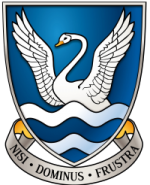 Single Award Science
Single Award Science
Aims
This specification aims to encourage you to:
- develop your knowledge and understanding of the material, physical and living worlds;
- develop your understanding of the nature of science and its applications and the
- interrelationships between science and society;
- develop your understanding of the relationships between hypotheses, evidence,
- theories and explanations;
- develop and apply your observational, practical, enquiry and problem-solving skills
- and understanding in laboratory, field and other learning environments;
- develop your ability to evaluate claims based on science through critical analysis of
- the methodology, evidence and conclusions; and
- develop your skills in communication, mathematics and the use of technology in
- scientific contexts.
Subject Overview
GCSE Single Award Science provides a broad, coherent and practical course that develops confidence in and a positive view of science. It encourages you to appreciate the value of science in your life and in the wider world.
We follow the CCEA Single Award Science specification, studying:
| Unit | Subject | Assessment Structure | Weighting |
| 1 | Biology | External written examination
Length: 1 Hour Students answer compulsory structured questions that include short responses, extended writing and calculations |
25% |
| 2 | Chemistry | As Unit 1 | 25% |
| 3 | Physics | As Unit 1 | 25% |
| 4 | Practical | Two components, both of which are externally assessed:
Booklet A: During Year 12 pupils complete 2 practicals in class Booklet B: An external examination paper which lasts 1 hour. Students answer compulsory structured questions that include short responses, extended writing and calculations, all set in a practical context |
7.5%
17.5% |
Career Opportunities
Science is crucial to understanding the world around us and understanding the challenges and benefits of living at a time when significant scientific discoveries happen every day. Science challenges our imaginations with developments in nanotechnologies, and it leads to significant discoveries, such as computers and lasers, and technologies that change our lives – from replacing worn out joints to curing cancer and developing sustainable energy solutions.
The specification provides a broad overview of key aspects of chemistry, biology and physics and an introduction to scientific methodology and key practical skills.
It also allows you to develop transferable skills that will benefit you in vocational training and employment. However, at Glenlola Collegiate School it does not provide a pathway to A Level Scinece.
Staffing
Staffing varies each year depending on the number of classes.
2020/21:
Mrs Redpath (Co-ordinator)
Mr Dorman
Mrs J Hughes
Mr Crawford (temporary)
Subject Overview
Physics is the study of how the world works and how this knowledge can be applied to improve our everyday lives. Physics is everywhere from mobile phones, hair straighteners and shop scanners to solar panels, airplanes and satellites. Many of the everyday devices we take for granted have their foundations in Physics. Physics continues to improve our world and look for solutions to our problems.
At Glenlola Collegiate School all pupils study Physics as an individual Science from Year 10. Pupils can then choose to continue the study of Physics at GCSE, AS and A Level.
Key Stage 3
In Year 10 pupils study Physics for 1 hour each week. The Year 10 syllabus aims to give pupils an insight into what studying Physics at GCSE will be like and how Physics can be applied to everyday situations. Pupils study topics including Measurement, Pressure, Static Electricity and Moments.
Key Stage 4
During the GCSE course the pupils will develop a knowledge and understanding of physics and how physics has an influence on the world we live in. It encourages the development of practical skills, logical thinking, problem solving and mathematical skills.
We follow the CCEA Physics specification, studying:
- Unit 1: Motion, Forces, Moments, Energy, Kinetic Theory, Radioactivity, Nuclear Fission and Fusion.
- Unit 2: Waves, Light, Electricity, Magnetism, Electromagnetism and Space Physics
- Unit 3: Practical Skills
Key Stage 5
At Key Stage 5 pupils continue to develop an appreciation of the value of physics in their everyday lives and in the world around us and develop their confidence in exploring hypotheses, theories and explanations. As well as deepening their understanding a knowledge the course also develops many desirable and transferable skills including: observational skills, accurate practical skills, application of mathematics, problem solving and logical thinking.
We follow the CCEA Physics specification, studying:
AS LEVEL
- AS 1: Forces, Energy and Electricity
- AS2: Waves, Photons and Astronomy
- AS 3: Practical Techniques and Data Analysis
A2 LEVEL
- A2 1: Deformation of Solids, Thermal Physics, Circular Motion, Oscillations and Atomic and Nuclear Physics
- A2 2: Fields, Capacitors and Particle Physics
- A2 3: Practical Skills and Data Analysis
http://www.rewardinglearning.org.uk/microsites/physics/
Career Opportunities
Physics is a highly regarded subject and the study of this subject develops many skills which are sought after by higher and further education and employers. An A Level in Physics opens doors in a wide range of career options including:
- Science careers
- Engineering of all disciplines
- Medicine
- Medical Physics
- Research
- Teaching
- Dentistry
- Architecture
- Veterinary Science
- Computer Software Programming
- Forensic Science
- Finance and many more.




